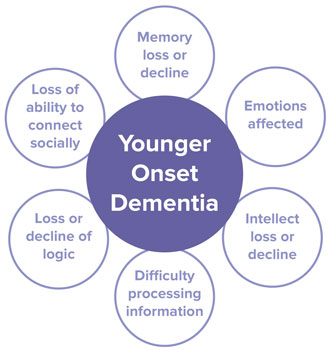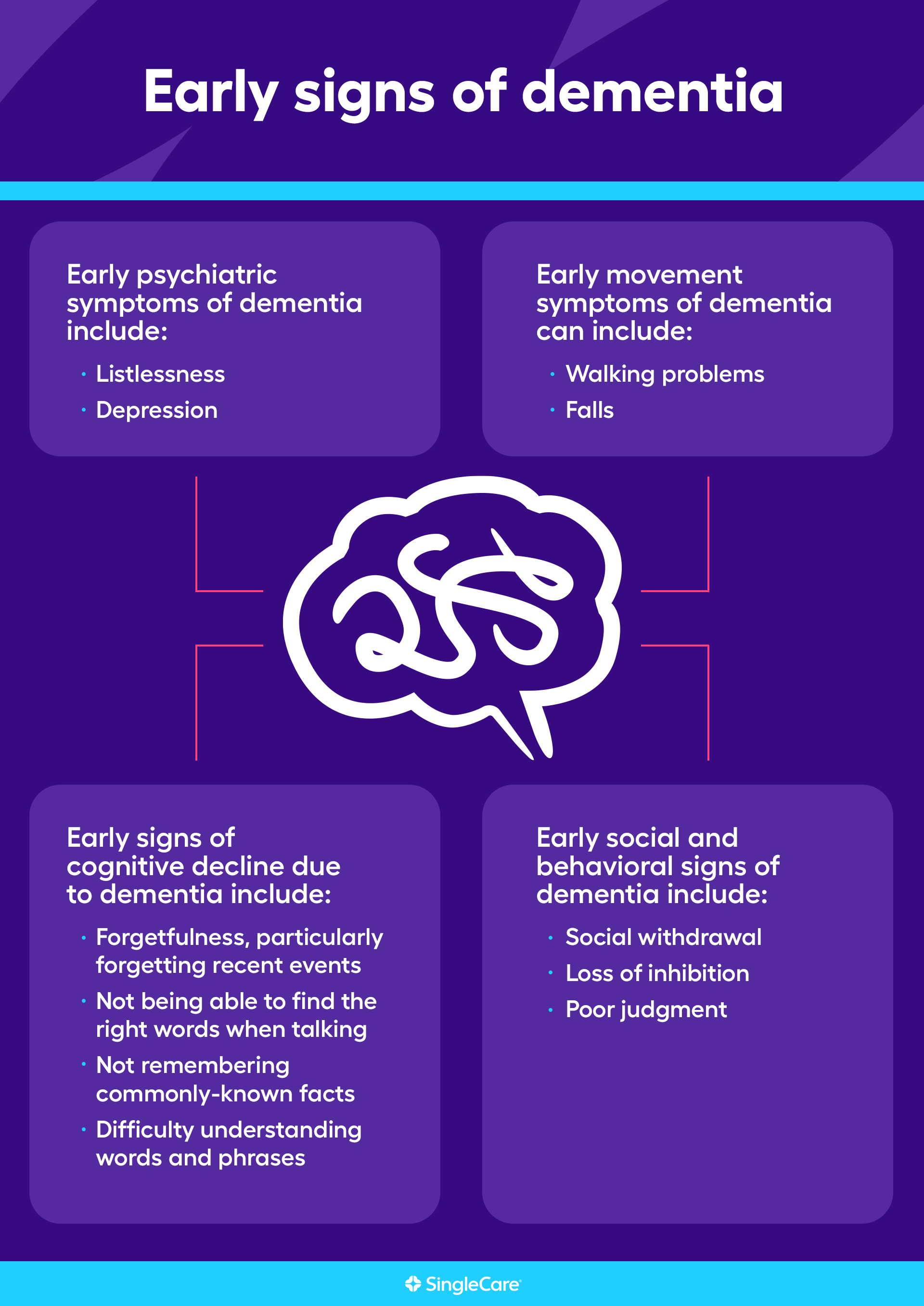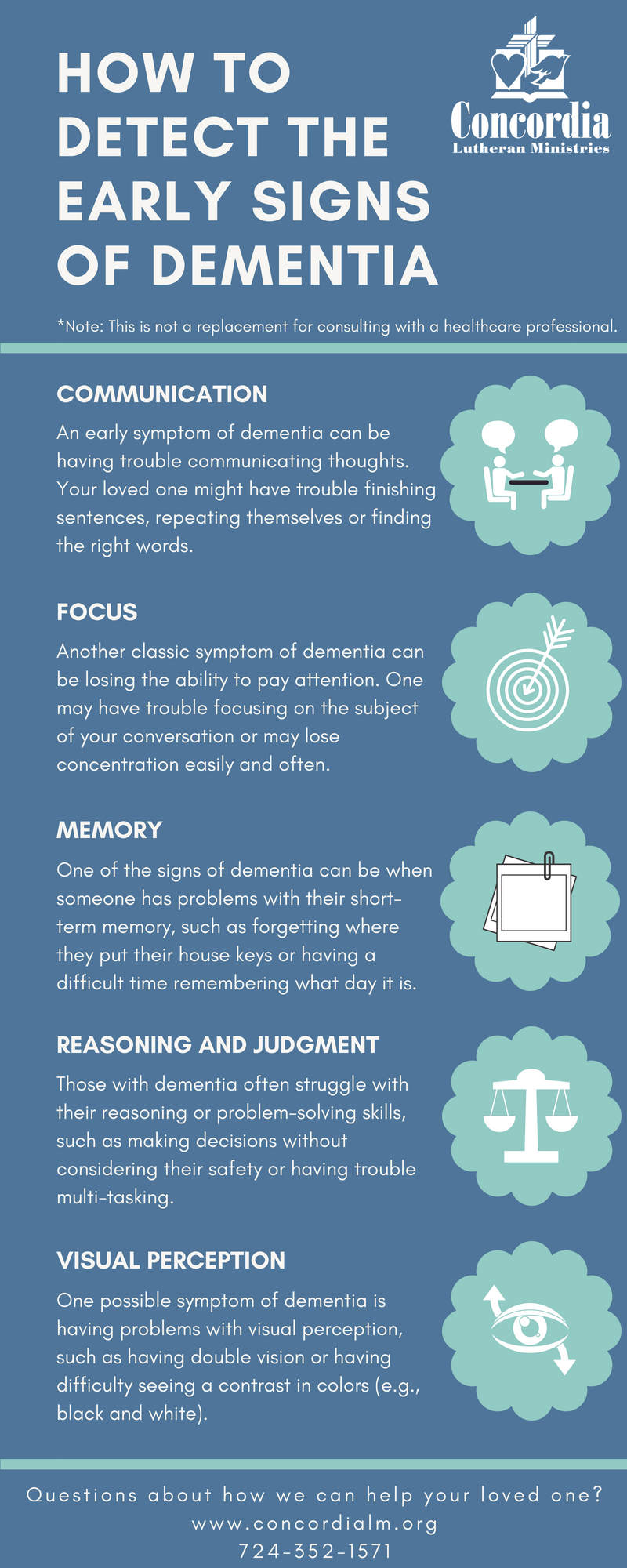Comprehending the Impact of Mental Deterioration on Day-to-day Live and Caregiving
Mental deterioration impacts life in extensive methods, impacting not simply those identified but additionally their caretakers. As cognitive decline proceeds, you may discover adjustments in interaction and routine that obstacle both events. Understanding these changes is crucial for preserving self-respect and engagement. Just how do you adapt your caregiving approaches to support somebody traversing this facility journey? The solutions might shock you as we discover the nuances of this experience.
The Stages of Mental Deterioration and Their Results on Every Day Life
As you browse the journey of mental deterioration, comprehending its phases can significantly affect exactly how you take care of life. Mental deterioration generally advances through three primary phases: early, center, and late. In the onset, you might discover periodic memory gaps or trouble locating the right words. This can result in frustration, but recognizing these indications early assists you adjust your regular and seek support.
During the center phase, you'll experience extra recognizable cognitive decrease. Daily jobs might end up being difficult, and preserving your independence may require changes. Making use of suggestions and streamlining your setting can assist.
In the late stage, individuals frequently require substantial assistance with day-to-day tasks. Planning for care comes to be crucial, concentrating on comfort and lifestyle. By recognizing these phases, you're much better equipped to react proactively, ensuring you or your loved one can navigate the challenges with self-respect and elegance.

Changes in Interaction and Social Interaction
Just how do changes in communication impact your everyday communications as mental deterioration advances? As mental deterioration advances, you could notice that simple discussions come to be challenging. Words may escape you, or you might battle to locate the appropriate expressions. This can bring about aggravation for both you and your loved ones. Nonverbal hints, like gestures or faces, become increasingly important.
You may find it simpler to link through these methods rather than depending solely on talked language. Listening skills can also transform; you may find it tougher to comply with conversations or bear in mind what was simply claimed (Early Onset Dementia). This can result in misconceptions or feelings of seclusion
Urging persistence and developing a supportive setting can assist. Taking part in tasks that cultivate connection, like music or art, can boost social interactions. Keep in mind, keeping connections is still feasible; it's almost adjusting to brand-new ways of interacting.
Effect on Daily Routines and Activities
While navigating everyday regimens, you'll likely notice that tasks you when finished effortlessly ended up being more difficult as mental deterioration proceeds. Easy activities like food preparation, clothing, or even bathing may require more time and initiative. You might find on your own forgetting steps in familiar routines or battling to remember where you positioned items. This can lead to aggravation not just for you, however additionally for those around you.
Adapting your setting can help; for circumstances, identifying items or making use of lists can simplify tasks. Engaging in recurring, structured activities can additionally offer comfort and a feeling of success. Bear in mind, it's all right to ask for aid.
Emotional and Behavior Difficulties
Steering with everyday routines can bring around not just sensible difficulties, but behavior and also psychological ones. You might see modifications in state of mind, such as boosted stress and anxiety or stress, which can come from complication or difficulty in finishing jobs. As you navigate these moments, it is vital to acknowledge that your enjoyed one may reveal their feelings with actions like agitation or withdrawal.
These psychological responses can be unforeseeable and might occur without caution, leaving you both sensation overwhelmed. You may locate that acquainted atmospheres or regimens can help decrease anxiousness, yet maintaining persistence ends up being substantial. It is very important to validate their feelings, also if you don't completely recognize them.
The Role of Caregivers in Supporting Individuals With Mental Deterioration
As a caregiver, you play a vital duty in providing emotional support for individuals with dementia. Developing day-to-day care routines can produce a sense of stability and comfort, assisting to reduce their anxiousness. By understanding their requirements and utilizing reliable approaches, you can greatly enhance their lifestyle.
Psychological Assistance Approaches
When caring for someone with mental deterioration, comprehending the emotional landscape is important for providing reliable support. Straightforward gestures, like holding their hand or maintaining eye get in touch with, can create a feeling of safety and security. Ultimately, do not forget to take treatment of your own psychological needs; looking for assistance for on your own can boost your capability to care for them.
Daily Care Routines
Developing daily treatment routines is important for providing security and comfort to people with dementia, as these regimens can help reduce confusion and anxiousness. You can start by laying out a consistent routine for dishes, tasks, and rest. This predictability aids your loved one feel a lot more secure and engaged.
Integrate acquainted tasks, like folding washing or watering plants, which can stimulate positive memories and foster a feeling of success. Usage aesthetic cues, such as calendars or lists, to direct them through the day.
Be flexible, though; adapt regimens as required based upon their mood or energy official source levels. Fall Risk. Bear in mind, your patience and understanding are crucial in steering their transforming needs, ensuring they feel supported and valued throughout their everyday life
Developing a Safe and Comfy Living Environment
Producing a safe and comfy living setting is vital for individuals with mental deterioration. You'll wish to make home security adjustments that decrease risks and ensure knowledge to give a feeling of convenience. By concentrating on these facets, you can help develop a space that sustains both safety and security and click here to find out more health.
Home Safety And Security Alterations
As you browse the challenges of dementia, making home security alterations can greatly boost convenience and safety. Beginning by removing tripping risks like carpets and mess, guaranteeing sidewalks are clear. Install grab bars in shower rooms and non-slip floor coverings in the shower to stop drops. Think about using brighter lights and evening lights to enhance visibility, specifically throughout nighttime. Label essential locations, such as the restroom and kitchen, with clear indications to assist with alignment. Protect any sharp things or hazardous compounds out of reach. In addition, examine your home's alarm systems and locks to confirm they're user-friendly and give comfort. These modifications not only promote security yet additionally motivate freedom, enabling your enjoyed one to feel even more secure in their atmosphere.
Convenience and Experience
After guaranteeing a risk-free environment with necessary modifications, promoting convenience and knowledge is essential for individuals with dementia. Maintain a my sources consistent regular to help them feel grounded and reduce stress and anxiety. Involving in acquainted activities, such as listening to songs or horticulture, can enhance their feeling of belonging, making their living setting a real refuge.
Approaches for Efficient Caregiving and Support
While maneuvering the challenges of mental deterioration treatment can feel overwhelming, carrying out efficient strategies can significantly boost both the caretaker's and the patient's day-to-day experience. Start by developing a routine; predictability helps in reducing anxiety for both you and your liked one. Usage clear, easy communication-- brief sentences and direct inquiries can stop confusion.

Do not neglect to deal with yourself; schedule breaks and link with support teams. Sharing experiences with others in similar situations can give beneficial insights and psychological alleviation.
Lastly, remain client and flexible. Dementia can bring unpredictable adjustments, so adjusting your technique is crucial. By employing these approaches, you can cultivate a much more favorable setting that benefits both you and your loved one.
Regularly Asked Concerns

What Are the Different Kinds Of Mental Deterioration?
You'll find several kinds of mental deterioration, including Alzheimer's, vascular dementia, Lewy body dementia, and frontotemporal dementia. Each type impacts memory and cognitive function in a different way, so comprehending the distinctions is vital for correct diagnosis and care.
Just How Can I Aid A Person With Early-Stage Mental Deterioration?
You can assist somebody with early-stage dementia by holding your horses, supplying assistance, and motivating them to engage in activities they enjoy. Maintaining regimens constant and keeping open interaction can additionally make a considerable difference in their every day life.
Exist Financial Resources Available for Mental Deterioration Care?
Yes, there are funds offered for dementia care. You can discover government assistance programs, not-for-profit organizations, and insurance alternatives. It's likewise a good idea to seek advice from regional firms for details sources customized to your situation.
What Lawful Considerations Should Caregivers Be Mindful Of?
As a caretaker, you need to think about power of lawyer, health care proxies, and guardianship laws. It's essential to recognize the legal civil liberties and responsibilities you hold, guaranteeing your liked one obtains suitable treatment and protection.
Just How Can I Cope With Caretaker Tension?
You can handle caretaker stress by focusing on self-care, looking for assistance from groups or close friends, setting practical assumptions, taking breaks, and exercising leisure techniques. Keep in mind, your health matters simply as high as the individual you're taking care of.
Recognizing the Impact of Mental Deterioration on Daily Life and Caregiving.
As you navigate the journey of mental deterioration, understanding its stages can markedly affect exactly how you handle daily life.While steering daily regimens, you'll likely observe that jobs you once completed easily become much more difficult as mental deterioration progresses.Developing day-to-day care regimens is essential for supplying security and convenience to individuals with mental deterioration, as these routines can assist reduce confusion and anxiety.While steering the obstacles of dementia care can really feel frustrating, executing effective techniques can significantly boost both the caregiver's and the patient's everyday experience.
Comments on “A Caregiver's Toolkit for Managing Early Onset Dementia at Home”